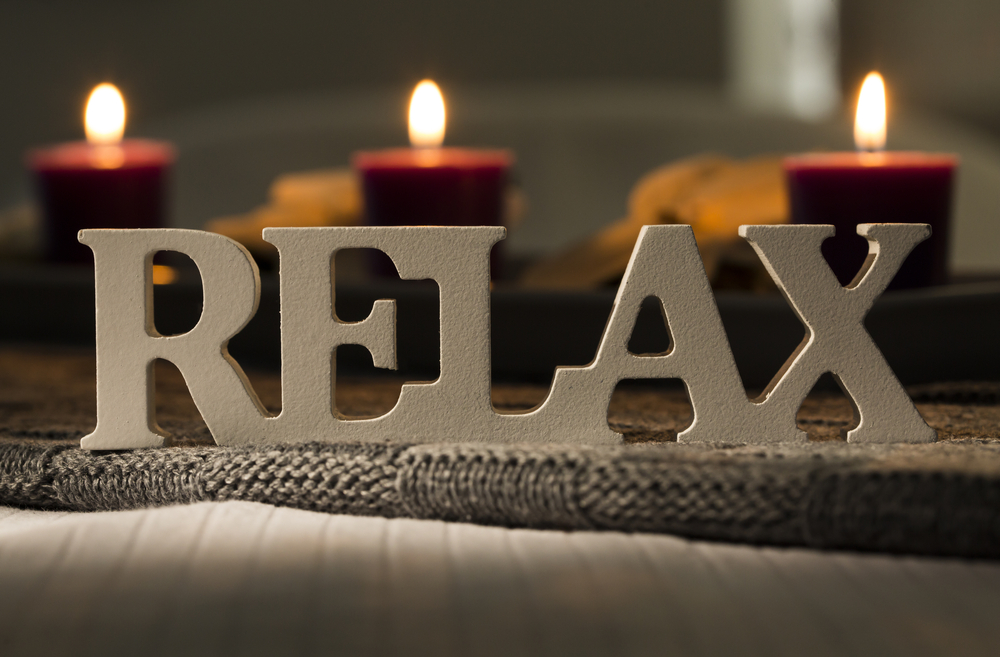
icsnaps / Shutterstock.com
No matter what stage of life you’re in, you probably have a busy schedule. In high school you spend seven or eight hours in school each day, plus transit time and the time you dedicate to your homework and studying. This doesn’t account for the time you spend participating in extracurricular activities, preparing for and taking standardized tests, and working on your college applications. In college, you have more freedom; fewer classes means less time in class, but you’ll be spending more time on your academics outside of class instead. Your commute may be shorter in college, but you’ll be living in a hub of activity, and your extracurriculars are bound to expand. When you go at full speed every day, it’s easy to get burnt out and become vastly underproductive. Factoring in time to relax is crucial.
Dr. Barton Goldsmith says “We need to give ourselves a break, and a little downtime works well for almost everybody. It doesn’t really matter what the activity or inactivity is. The idea is to give your body, mind, and heart a chance to relax and recharge. If you keep going at full speed every day, it can be really hard on you, both physically and mentally. We were not designed to go 24/7/365...” According to Dr. Goldsmith, anything that relaxes you counts as taking a break. It doesn’t have to be that you sit yourself down on the couch and force yourself to watch Netflix for 12 hours. If you find that exercise is relaxing and helps you mentally recharge, go for a run! If you prefer to read, paint, or watch television, then have at it. As long as what you do for relaxation has nothing to do with your “day job,” your mind and body will thank you for it.
When you’re stressed, you feel it not only mentally, but physically as well. Have you ever noticed pain in your neck and back after a long day in the library working on an essay? In some cases, you may just need to stretch out and work on your posture, but in others, that tension can be a physical manifestation of the stress that you’re carrying. Aside from just increasing the frequency at which you need massages, stress can have other physical side effects:
- If you experience chronic stress, you are more likely than stress-free individuals to develop a cold with persistent symptoms that take longer than normal to recede.
- Stress can negatively affect your heart health in a variety of ways. You may use unhealthy coping mechanisms when you’re stressed, like eating, smoking, or drinking to help you relax; all of these can increase your risk of developing heart disease. Furthermore, when you are stressed, your blood pressure may jump. High blood pressure can lead to heart attacks, heart failure, or strokes. It’s safe to say that prolonged stress can increase your risk of dying from a heart-related condition.
- When you are stressed, your body releases two stress hormones: cortisol and adrenaline. You may know adrenaline as the “fight or flight” hormone. It’s intended to help you when you’re in a dangerous situation, like when you’re startled or attacked. With stress comes the constant release of both adrenaline and cortisol, which puts you in a state of agitation and opens you up to a whole host of physical and mental issues, including an increased risk of anxiety, depression, trouble sleeping, weight gain (cortisol is linked to an increase in appetite and cravings), memory impairment, headaches, and trouble with your digestive tract.
You can lower your stress levels in a variety of ways. Exercise, even low-impact activities like yoga or stretching, lower stress and provide additional benefits to your body physically (strengthening your muscles, preventing obesity, etc.). While these activities may raise your heart rate while you are actively pursuing them, this isn’t the same as having a constantly increased heart rate and blood pressure due to the release of stress hormones. After finishing your exercise routine, your heart rate returns to a normal level, taking your stress away with it. If you want to test the theory, try going for a run the next time you feel so stressed that you can’t focused.

L Julia / Shutterstock.com
If you don’t want to exercise, there are other relaxing and de-stressing activities in which you can participate. Calling your parents, FaceTiming with a sibling, or spending time with a close friend can release oxytocin, which combats cortisol levels, thereby lowering your level of stress. Even better is finding an activity that will make you laugh. Spending time focusing on something other that your stressors will keep you both mentally and physically healthy. Reading, listening to music, playing with animals, taking a long walk, cooking, deep breathing, meditation, or getting a massage are all techniques that you can use to relax and lower your level of stress. Maintaining a healthy diet and making sure that you get enough sleep each night will also help.
When you relax, your heart rate falls, your blood pressure decreases, your breathing regulates, and much of the tension you hold in your body is released. These are merely the physical changes, though. You will also feel more able to focus and be more energized. Of course, relaxation directly combats stress, so you’ll feel better for days to come if you factor in a little “me time” every day.
What are your favorite ways to relax?
-
How to Keep Your Brain Active Over Summer Vacation
-
How to Spot the Signs of a Toxic Relationship
-
Grocery Shopping for Finals Week: Food to Keep You Full and Focused
-
How Exercise and Exposure to Nature Help You Recover from Addiction
-
Seizures and Seizure Disorders
-
Getting Nutrients from Your Meal Plan
-
How to Prevent Illness and Cope with Being Sick at College
-
Six Ways to Cope if You’re Feeling Overwhelmed in College
-
Is an Unhealthy Lifestyle Hindering Your Ability to Learn?
-
I Thought about Transferring Colleges but I Stayed

